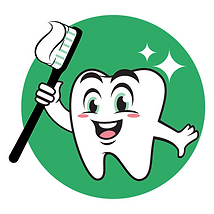
We have a motivated hygienist who is dedicated to gum health At your examination appointment your gum health will be assessed to evaluate your need for periodontal treatment then, a referral will be outlined to your Hygienist to improve your oral health, to help increase the longevity of your teeth and improve your smile.
Scaling and polishing regularly by your Dental Hygienist helps to keep your teeth and gums healthy and your smile whiter. Scaling your teeth removes the hard tartar which cannot be removed by brushing. Stains from coffee, tea, cigarettes or red wine are removed with the polishing. The scaling element of this treatment can be completed by hand scalers, or by an ultrasonic water spray. At your appointment, your Hygienist will help create a detailed oral health care plan as a prevention of the daily plaque build-up and will help you maintain your smile. A routine scale and polish appointment lasts around twenty to thirty minutes and costs £65.
Affordable Patient plans are available for as little as £17 per month, allowing you to spread the cost over the year, these also include other perks.
If you would like cleaner, brighter teeth and would love to have unsightly stains removed, then this powerful new treatment could be for you. We are now offering ‘Aquacare’ stain removal to our patients.
So many of our patients tell us that they would like to have whiter teeth because they realise how much that this would boost their confidence and make them prouder of their smiles. The Aquacare system literally blasts stains away before your eyes.
This stain removal treatment will also enhance the effectiveness of teeth whitening treatment. Teaming ‘Aquacare’ stain removal with a follow-up whitening treatment will help to produce your brightest smile yet.
Debridement of teeth is used for advanced periodontal disease. The Hygienist will initially take detailed measurements of every tooth which involves gentle probing in 6 areas around each tooth, Measurements will also be taken of recession (shrinkage of the gum), mobility and bleeding areas. This will help the clinician to create a detailed treatment plan for each individual case and assess if there has been any improvement in future appointments.
Advanced debridement treatment involves scaling to remove the calculus (tartar) and plaque from the tooth. Gum disease is particularly a problem when the calculus (tartar) gets below the gum service and is attached to the root surface where you can no longer clean it. This then becomes an haven for bacteria which can be harmful to the bone and ligaments that hold our teeth in place. Special ultrasonic scalers can be used to initially break down the hard calculus. Then, special hand-held instruments like scalers and curettes are used to do the fine scaling. Bacteria are more likely to stick to the rough surfaces (the root of a tooth). The root surface is cleaned in a process called root debridement. This helps removes any remaining calculus on the root, and leaves the surface less susceptible to the bacteria. This treatment is usually completed under local anaesthetic to enhance the patients comfort.
Scaling and root debridement can be done in just one area of your mouth if the disease is just localised. Generalised periodontitis spreading throughout your mouth requires the clinician to typically treat only a quarter (a quadrant), or half of the mouth at any one time. This means that two to four visits may be necessary to complete the scaling and root debridement if necessary. Appointment times for debridement can vary from thirty minutes up to one hour and you may need a subsequent visit, this will be discussed at length at your initial appointment with a clinician.
The outcomes of having treatment depend and vary from one person to the next. The most crucial factor is consistently good oral hygiene and stopping smoking. Treatment may only slow down the disease process or stabilise the disease. In some cases and where it is localised areas, the disease may be cured. In spite of all the treatments, effort and expense to keep the tooth or teeth, they may still be lost. However treatment gives you a better chance of keeping your teeth and can alleviate some of the symptoms, such as the inflammation and bad breath. The aim of treatment is to slow the gum disease down as much as possible. To achieve this regular, dental examinations are required by your dentist to evaluate your gum health and routine hygiene appointments may be necessary to help maintain your improved smile.



| Cookie | Duration | Description |
|---|---|---|
| cookielawinfo-checkbox-analytics | 11 months | This cookie is set by GDPR Cookie Consent plugin. The cookie is used to store the user consent for the cookies in the category "Analytics". |
| cookielawinfo-checkbox-functional | 11 months | The cookie is set by GDPR cookie consent to record the user consent for the cookies in the category "Functional". |
| cookielawinfo-checkbox-necessary | 11 months | This cookie is set by GDPR Cookie Consent plugin. The cookies is used to store the user consent for the cookies in the category "Necessary". |
| cookielawinfo-checkbox-others | 11 months | This cookie is set by GDPR Cookie Consent plugin. The cookie is used to store the user consent for the cookies in the category "Other. |
| cookielawinfo-checkbox-performance | 11 months | This cookie is set by GDPR Cookie Consent plugin. The cookie is used to store the user consent for the cookies in the category "Performance". |
| viewed_cookie_policy | 11 months | The cookie is set by the GDPR Cookie Consent plugin and is used to store whether or not user has consented to the use of cookies. It does not store any personal data. |